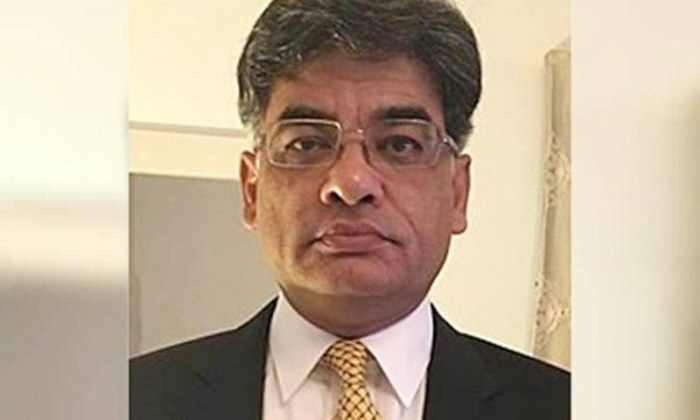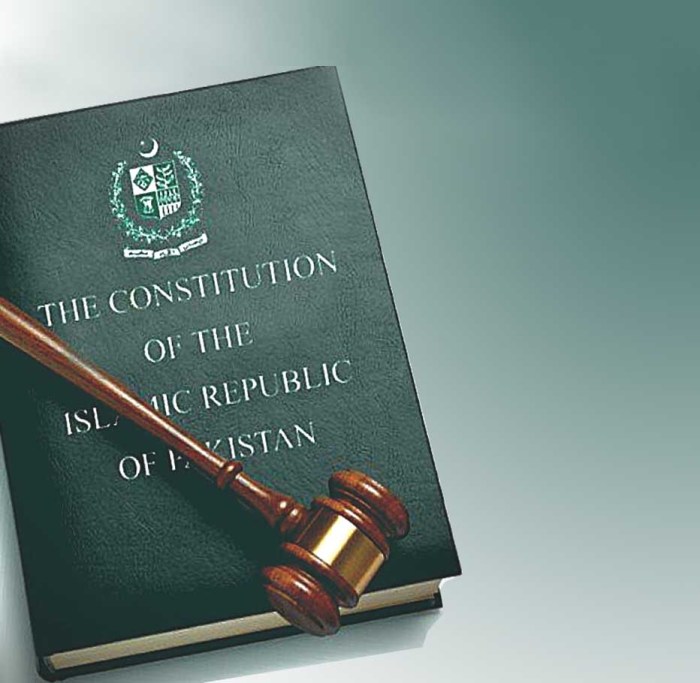Navigating the Pakistani legal landscape requires understanding the diverse roles within its legal profession. This guide delves into the meaning and scope of “attorney at law” in Pakistan, differentiating it from other legal professionals like barristers and solicitors. We’ll explore the educational path, responsibilities, and ethical considerations involved, offering insights into the daily realities of legal practice in Pakistan.
From the bustling courts of Karachi to the quieter tribunals of smaller cities, attorneys at law play a pivotal role in upholding justice and representing clients’ interests. We will examine their powers, the attorney-client relationship, and the impact of technology on their practice, providing a nuanced perspective on this vital profession.
Definition and Scope of “Attorney at Law” in Pakistan

In Pakistan, the legal profession isn’t uniformly structured like some Western systems. There isn’t a single, universally recognized title of “Attorney at Law” in the same way it might exist in the US. Instead, the legal landscape is comprised of various roles with overlapping yet distinct functions. Understanding these distinctions is crucial to grasping the scope of legal practice within the country.
Legal Professionals in Pakistan: Distinctions and Roles
Pakistan’s legal system draws upon both English common law and Islamic law, resulting in a unique professional structure. While the term “advocate” is commonly used and encompasses a broad range of legal practitioners, specific roles like barrister and solicitor, though less formally defined than in the UK, still hold practical significance. The lack of a strict “Attorney at Law” title means practitioners often use titles based on their area of practice and the courts they appear in.
Educational Requirements and Licensing
Aspiring legal professionals in Pakistan must first obtain an LLB (Bachelor of Laws) degree from a recognized university. This typically involves a five-year program. After graduating, individuals must register with the respective provincial bar councils (e.g., the Sindh Bar Council, Punjab Bar Council) to obtain a license to practice law. This registration process involves meeting certain criteria and taking an oath. Continuing legal education is also often required to maintain licensure. Specific requirements vary slightly between provinces.
Comparison of Legal Professionals in Pakistan
| Legal Professional | Primary Role | Court Appearances | Client Interaction |
|---|---|---|---|
| Advocate | Represents clients in court and provides legal advice | High Courts, Supreme Court, other courts | Direct client interaction, often handles all aspects of a case |
| Barrister (Informal Usage) | Specialized in court advocacy, particularly higher courts | Primarily High Courts and Supreme Court | Often works through solicitors or directly with clients in higher-value cases |
| Solicitor (Informal Usage) | Focuses on legal documentation, advice, and client interaction outside of court | Limited court appearances, usually lower courts | Handles much of the initial client interaction and preparation of cases |
| Legal Consultant | Provides legal advice and opinions, often specializing in specific areas of law | May or may not appear in court, depending on specialization | Primarily provides advice and opinions, not necessarily direct court representation |
Powers and Responsibilities of an Attorney at Law in Pakistan

Attorneys at law in Pakistan wield significant legal powers and shoulder substantial responsibilities, all governed by a strict code of ethics and professional conduct. Their role is crucial in ensuring access to justice and upholding the rule of law. Understanding their powers, responsibilities, and ethical obligations is vital for both the legal profession and the public.
Attorneys in Pakistan are granted various legal powers, primarily derived from the Legal Practitioners and Bar Councils Act, 1973, and the rules and regulations of the respective provincial Bar Councils. These powers enable them to represent clients in various legal proceedings, advise on legal matters, and act on their clients’ behalf within the confines of the law. They possess the authority to file lawsuits, conduct legal research, prepare legal documents, and represent their clients in court. This authority extends to negotiating settlements, advising on legal strategies, and generally acting as the client’s advocate in legal matters.
Legal Powers and Authorities
Attorneys at law in Pakistan are authorized to represent clients before all courts and tribunals, including the Supreme Court of Pakistan, High Courts, and lower courts. They can file lawsuits, draft pleadings, conduct legal research, and present arguments on behalf of their clients. This includes the power to examine and cross-examine witnesses, present evidence, and make submissions to the court. They are also authorized to conduct negotiations on behalf of their clients to reach out-of-court settlements. The extent of their power is largely determined by the specific mandate given to them by their clients.
Common Legal Tasks Performed
Attorneys in Pakistan perform a wide range of legal tasks. These commonly include drafting contracts, wills, and other legal documents; providing legal advice on various matters such as family law, property law, and corporate law; representing clients in civil and criminal litigation; handling matters related to intellectual property rights; conducting legal due diligence; and providing legal opinions on specific legal issues. For example, a common task would involve representing a client accused of a crime, preparing a defense strategy, and presenting their case in court. Another would involve negotiating a property sale, ensuring all legal requirements are met and protecting the client’s interests.
Ethical Obligations and Professional Conduct
The conduct of attorneys in Pakistan is governed by a strict code of ethics, primarily enshrined in the rules and regulations of the respective provincial Bar Councils. These rules emphasize the importance of maintaining client confidentiality, acting with integrity and honesty, avoiding conflicts of interest, and upholding the dignity and independence of the legal profession. Attorneys are bound by professional secrecy and cannot disclose confidential information obtained from their clients, except in certain limited circumstances, such as when required by law. They must also act diligently and competently in representing their clients and avoid any conduct that could bring the legal profession into disrepute. Breaches of these ethical obligations can result in disciplinary action, including suspension or disbarment.
Areas of Specialization
Attorneys in Pakistan often specialize in specific areas of law. This specialization allows them to develop expertise and provide clients with highly specialized legal services.
- Corporate Law
- Family Law
- Criminal Law
- Civil Litigation
- Property Law
- Tax Law
- Intellectual Property Law
- Constitutional Law
- International Law
- Labor Law
Illustrative Examples of Attorney at Law Work in Pakistan
Attorneys at law in Pakistan handle a diverse range of legal matters, requiring specialized knowledge and strategic thinking. The following examples illustrate the varied roles and responsibilities they undertake across different legal fields. Each case highlights the attorney’s involvement from initial consultation to final resolution, demonstrating the complexities and nuances of legal practice in Pakistan.
Criminal Case: Defense Against Theft Charges
A young man, accused of theft from a local market, approached a lawyer specializing in criminal defense. The attorney, after a thorough investigation, discovered inconsistencies in the prosecution’s evidence, specifically the lack of credible eyewitness testimony and flawed forensic analysis. The lawyer employed a strategy focusing on challenging the prosecution’s case through cross-examination of witnesses and presenting evidence highlighting reasonable doubt. The attorney successfully argued for the dismissal of the charges due to insufficient evidence, securing the client’s acquittal. This case demonstrates the importance of meticulous investigation and strategic defense in achieving a favorable outcome in criminal proceedings.
Family Law Case: Divorce and Child Custody
A woman sought legal counsel regarding a divorce and child custody dispute. Her attorney, specializing in family law, worked to negotiate a fair settlement that addressed the division of assets, spousal support, and child custody arrangements. The attorney meticulously documented the evidence of domestic abuse, ensuring it was considered in the custody decision. While aiming for an amicable settlement, the attorney prepared for litigation, should negotiations fail. The case resulted in a mutually agreed-upon divorce settlement, with the woman securing primary custody of the children and fair financial support. This example highlights the sensitivity and negotiation skills required in family law cases, aiming for resolution while protecting the client’s interests.
Corporate Law Case: Contract Dispute
A multinational corporation based in Pakistan faced a significant contract dispute with a local supplier. Their corporate attorney, experienced in commercial litigation, initiated negotiations to resolve the matter amicably. However, when negotiations stalled, the attorney initiated arbitration proceedings, presenting compelling evidence demonstrating the supplier’s breach of contract. The attorney’s meticulous preparation and strong legal arguments resulted in a favorable arbitration award for the corporation, recovering significant financial losses and safeguarding their business interests. This illustrates the strategic use of arbitration and the importance of strong legal representation in resolving high-stakes commercial disputes.
Stages of a Typical Legal Case in Pakistan
The following illustrates the typical stages of a legal case, though the specifics may vary based on the type of case and jurisdiction:
Initial Consultation & Case Assessment: The client meets with the attorney to discuss the case, providing relevant information and documents. The attorney assesses the case, determines legal strategy, and advises the client on potential outcomes.
Investigation & Evidence Gathering: The attorney conducts investigations, gathers evidence, interviews witnesses, and obtains relevant documents to support the client’s case.
Pleadings & Court Proceedings: Legal documents (pleadings) are filed with the court, outlining the claims and defenses. The case proceeds through various court stages, including hearings, motions, and potentially a trial.
Negotiation & Settlement: The attorney engages in negotiations with the opposing party to attempt to reach a settlement outside of court.
Judgment & Enforcement: If a settlement is not reached, the court issues a judgment. The attorney then assists in enforcing the judgment, if necessary.
Appeal (if applicable): If the client is dissatisfied with the court’s judgment, the attorney may file an appeal with a higher court.
Summary

Understanding the role of an attorney at law in Pakistan is crucial for anyone engaging with the legal system. This guide has provided a framework for comprehending the definition, responsibilities, and challenges faced by these legal professionals. From the intricacies of legal procedure to the evolving technological landscape, the Pakistani legal profession continues to adapt and evolve, ensuring access to justice for all.
FAQ Summary
What is the difference between a lawyer and an attorney in Pakistan?
In Pakistan, the terms “lawyer” and “attorney at law” are often used interchangeably. There isn’t a strict legal distinction as there is in some other common law systems (like the US distinction between attorney and solicitor).
Can an attorney at law in Pakistan represent clients in all types of courts?
Generally, yes, but specialization is common. While an attorney can appear in various courts, experience and expertise often lead to focusing on specific areas like criminal, family, or corporate law.
What is the average salary of an attorney at law in Pakistan?
Salaries vary greatly depending on experience, specialization, location, and the size of the firm. There’s no single average, but it’s safe to say that it ranges widely.
How long does it take to become an attorney at law in Pakistan?
Becoming an attorney involves completing a law degree (LLB) followed by enrollment with the relevant bar council. The total time is typically around 5-7 years after completing secondary education.